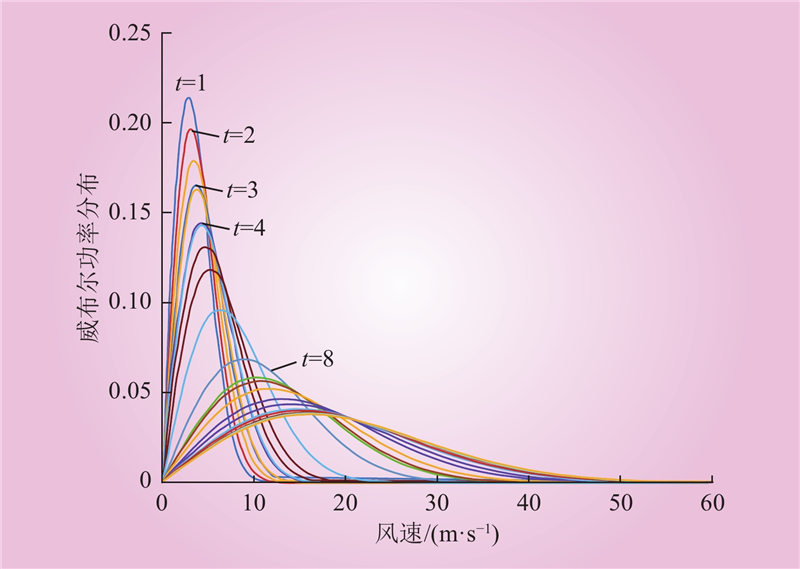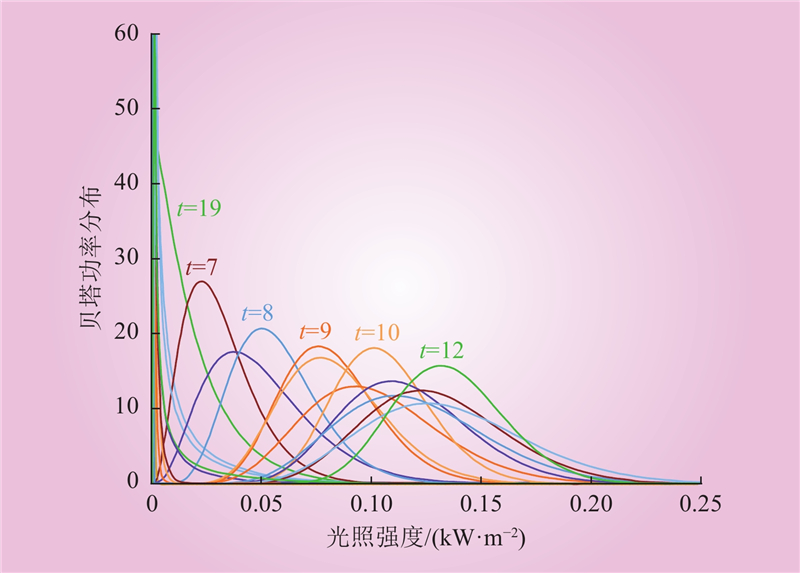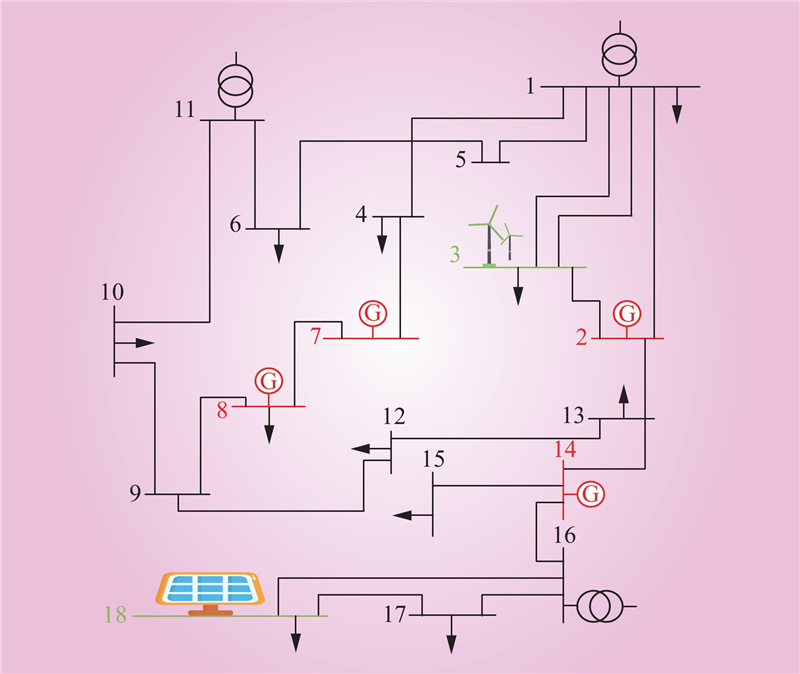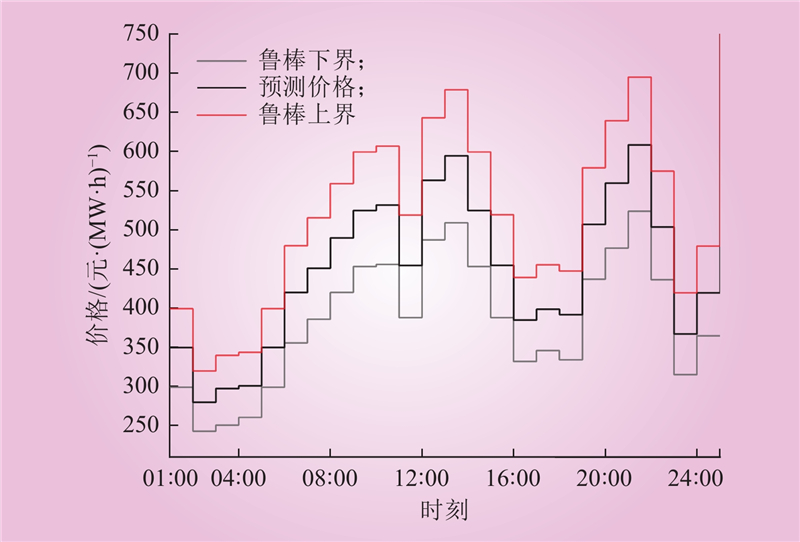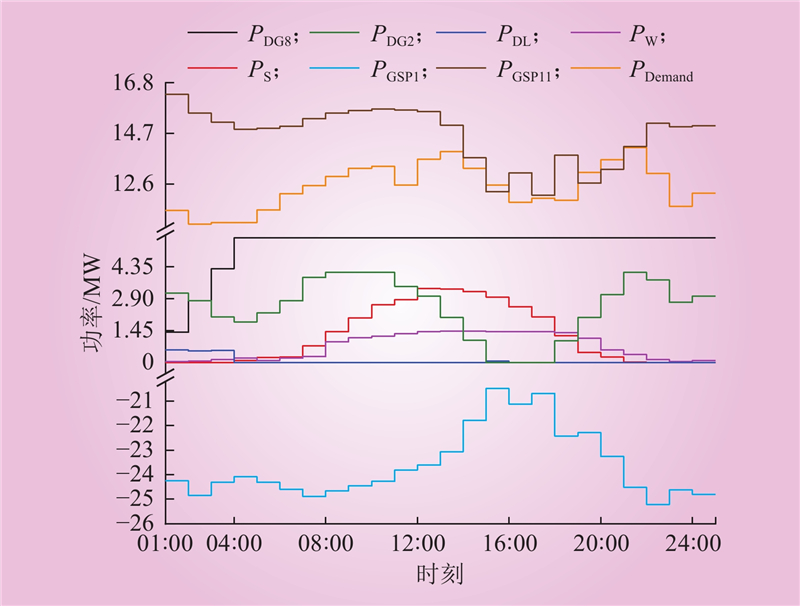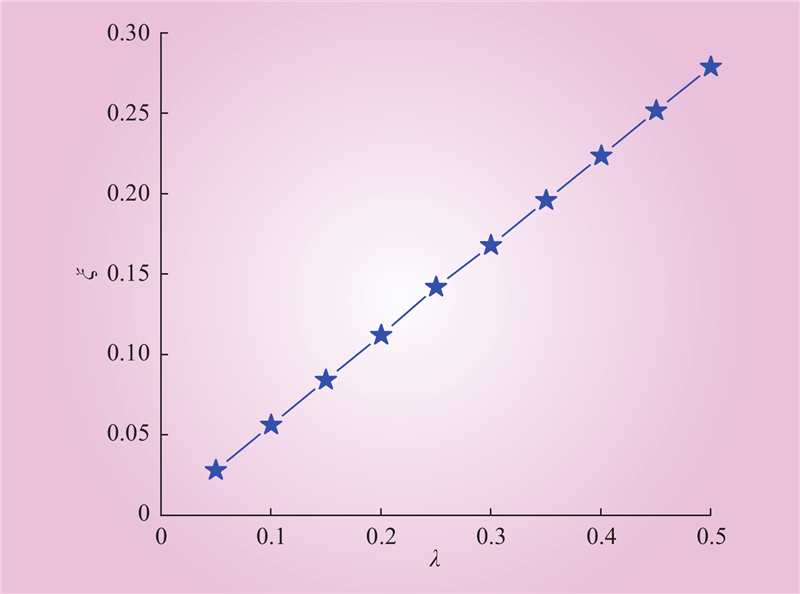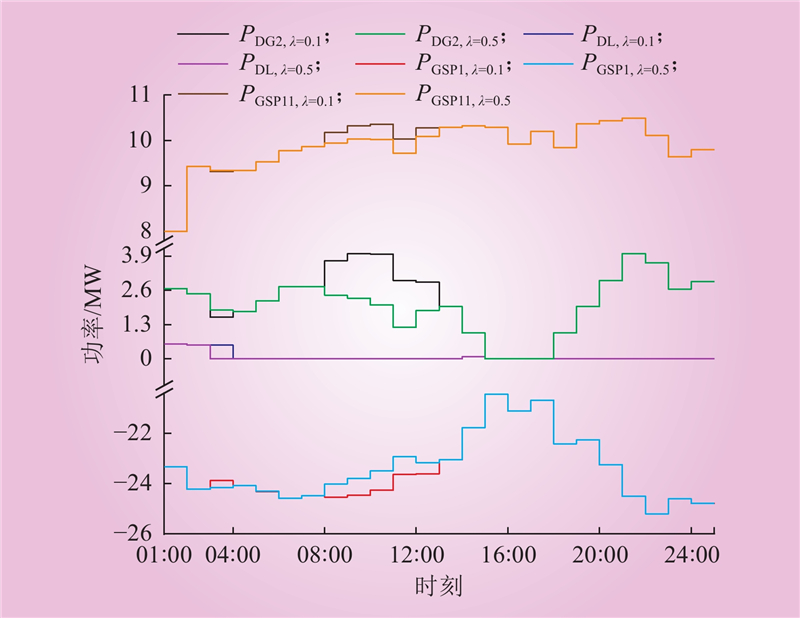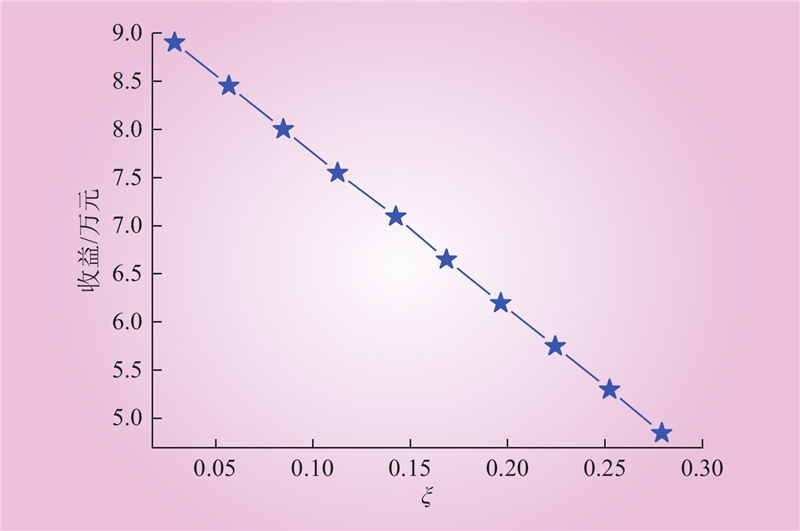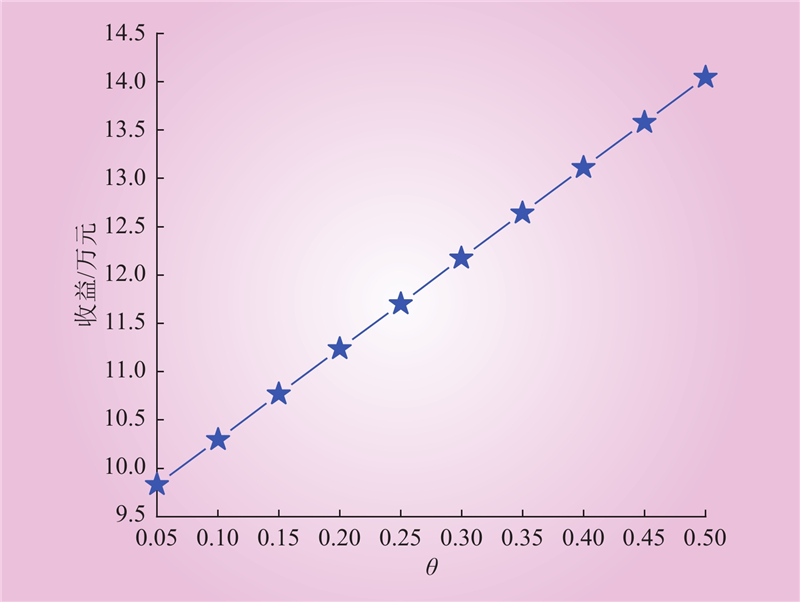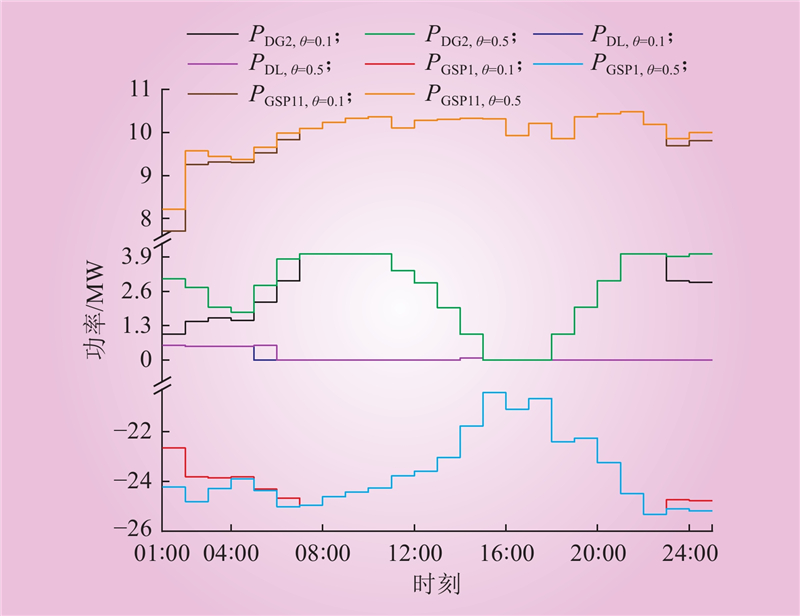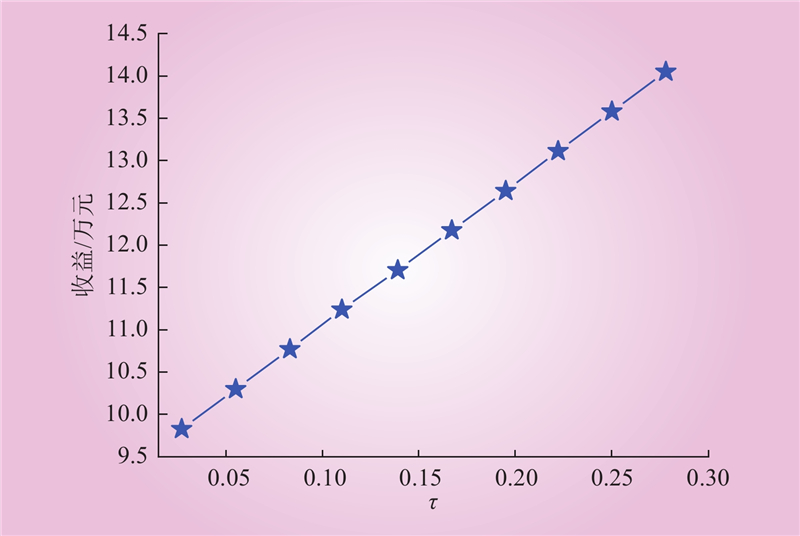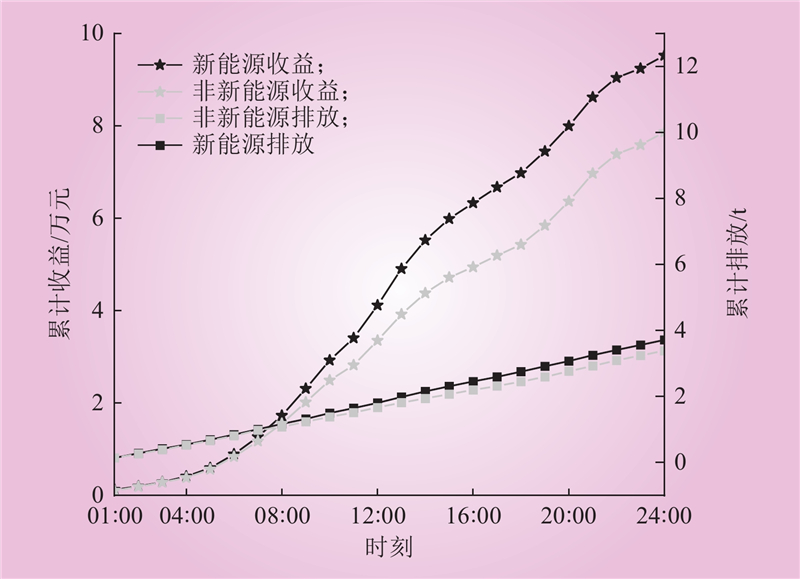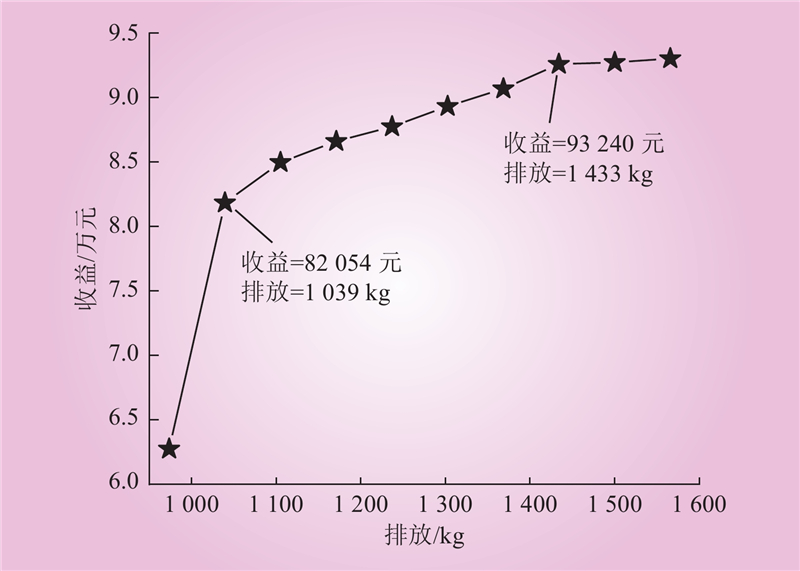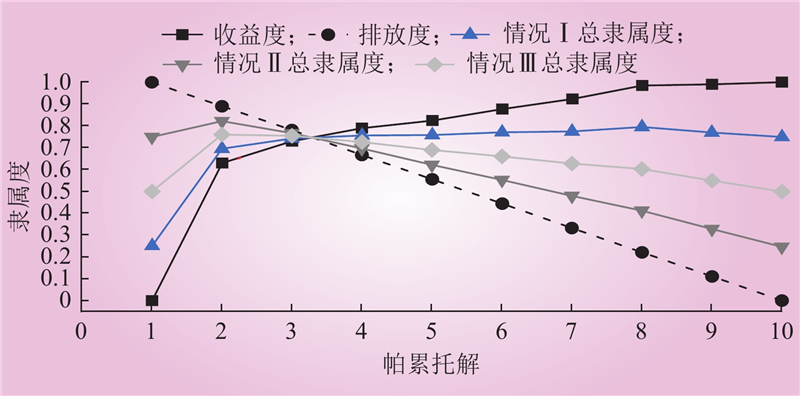| 1 |
陈皓勇. 含高比例新能源的电力市场设计[J]. 风能, 2022, (10): 12- 14.
|
| 2 |
黎博, 陈民铀, 钟海旺, 等. 高比例可再生能源新型电力系统长期规划综述[J]. 中国电机工程学报, 2023, 43 (2): 555- 581.
|
|
LI Bo, CHEN Minyou, ZHONG Haiwang, et al. A review of long-term planning of new power systems with large share of renewable energy[J]. Proceedings of the CSEE, 2023, 43 (2): 555- 581.
|
| 3 |
陈寒, 唐忠, 鲁家阳, 等. 基于CVaR量化不确定性的微电网优化调度研究[J]. 电力系统保护与控制, 2021, 49 (5): 105- 115.
|
|
CHEN Han, TANG Zhong, LU Jiayang, et al. Research on optimal dispatch of a microgrid based on CVaR quantitative uncertainty[J]. Power System Protection and Control, 2021, 49 (5): 105- 115.
|
| 4 |
葛鑫鑫, 付志扬, 徐飞, 等. 面向新型电力系统的虚拟电厂商业模式与关键技术[J]. 电力系统自动化, 2022, 46 (18): 129- 146.
|
|
GE Xinxin, FU Zhiyang, XU Fei, et al. Business model and key technologies of virtual power plant for new power system[J]. Automation of Electric Power Systems, 2022, 46 (18): 129- 146.
|
| 5 |
李鹏, 蒋正威, 邓一帆, 等. 虚拟电厂参与电力市场与调度控制技术研究综述[J]. 浙江电力, 2022, 41 (6): 8- 14.
|
|
LI Peng, JIANG Zhengwei, DENG Yifan, et al. A review of VPP participating in power market and dispatch control technology[J]. Zhejiang Electric Power, 2022, 41 (6): 8- 14.
|
| 6 |
刘向向, 张森林, 朱思乔, 等. 基于灰靶理论和谱聚类的虚拟电厂多形态柔性资源聚合模型[J]. 中国电力, 2023, 56 (11): 104- 112.
|
|
LIU Xiangxiang, ZHANG Senlin, ZHU Siqiao, et al. Multi-form flexible resource aggregation model for virtual power plant based on grey target theory and spectral clustering[J]. Electric Power, 2023, 56 (11): 104- 112.
|
| 7 |
潘美琪, 贺兴, 艾芊, 等. 新型配电系统分布式资源调度研究现状与展望[J/OL]. 电网技术: 1–16[2023-10-19]. https://doi.org/10.13335/j.1000-3673.pst.2023.0716.
|
|
PAN Meiqi, HE Xing, AI Qian, et al. Research status and prospect of distributed energy resource dispatching in new distribution system[J/OL]. Power System Technology: 1–16[2023-10-19]. https://doi.org/10.13335/j.1000-3673.pst.2023.0716.
|
| 8 |
苏志鹏, 王莉, 梁欣怡, 等. 考虑阶梯式碳交易及综合需求响应的虚拟电厂优化调度[J]. 中国电力, 2023, 56 (12): 174- 182.
|
|
SU Zhipeng, WANG Li, LIANG Xinyi, et al. Optimal dispatch of virtual power plant considering stepped carbon trading and comprehensive demand response[J]. Electric Power, 2023, 56 (12): 174- 182.
|
| 9 |
邓靖微, 李华强, 温丰瑞, 等. 计及虚拟电厂市场交易的主动配电网两阶段优化调度[J]. 电力建设, 2021, 42 (9): 22- 31.
|
|
DENG Jingwei, LI Huaqiang, WEN Fengrui, et al. Two-stage optimal dispatching of active distribution network considering virtual power plant market transaction[J]. Electric Power Construction, 2021, 42 (9): 22- 31.
|
| 10 |
周振宇, 王曌, 廖海君, 等. 电力物联网5G云-边-端协同框架与资源调度方法[J]. 电网技术, 2022, 46 (5): 1641- 1651.
|
|
ZHOU Zhenyu, WANG Zhao, LIAO Haijun, et al. 5G cloud-edge-end collaboration framework and resource scheduling method in power Internet of Things[J]. Power System Technology, 2022, 46 (5): 1641- 1651.
|
| 11 |
徐文涛, 张晶, 马红明, 等. 计及多能转化效率的区域综合能源系统协同优化模型研究[J]. 电网与清洁能源, 2021, 37 (10): 98- 106.
|
|
XU Wentao, ZHANG Jing, MA Hongming, et al. Research on the collaborative optimization model of comprehensive energy system considering multi-energy conversion efficiency[J]. Power System and Clean Energy, 2021, 37 (10): 98- 106.
|
| 12 |
WU Q W, TAN J, ZHANG M L, et al. Adaptive robust energy and reserve co-optimization of integrated electricity and heating system considering wind uncertainty[J]. Applied Energy, 2020, 260, 114230.
|
| 13 |
CHEN X, WANG C F, WU Q W, et al. Optimal operation of integrated energy system considering dynamic heat-gas characteristics and uncertain wind power[J]. Energy, 2020, 198, 117270.
|
| 14 |
XU D, WU Q W, ZHOU B, et al. Distributed multi-energy operation of coupled electricity, heating, and natural gas networks[J]. IEEE Transactions on Sustainable Energy, 2020, 11 (4): 2457- 2469.
|
| 15 |
尚楠, 陈政, 卢治霖, 等. 电力市场、碳市场及绿证市场互动机理及协调机制[J]. 电网技术, 2023, 47 (1): 142- 154.
|
|
SHANG Nan, CHEN Zheng, LU Zhilin, et al. Interaction principle and cohesive mechanism between electricity market, carbon market and green power certificate market[J]. Power System Technology, 2023, 47 (1): 142- 154.
|
| 16 |
徐筝, 孙宏斌, 郭庆来. 综合需求响应研究综述及展望[J]. 中国电机工程学报, 2018, 38 (24): 7194- 7205, 7446.
|
|
XU Zheng, SUN Hongbin, GUO Qinglai. Review and prospect of integrated demand response[J]. Proceedings of the CSEE, 2018, 38 (24): 7194- 7205, 7446.
|
| 17 |
孙鹏, 关琦, 范元亮. 计及综合需求响应的多能源系统调度研究综述[J]. 节能技术, 2019, 37 (5): 476- 481.
|
|
SUN Peng, GUAN Qi, FAN Yuanliang. Research on multi-energy system scheduling with integrated demand response[J]. Energy Conservation Technology, 2019, 37 (5): 476- 481.
|
| 18 |
李艳梅, 任恒君, 张致远, 等. 考虑储能系统调度与风电消纳的峰谷分时电价优化模型研究[J]. 电网技术, 2022, 46 (11): 4141- 4149.
|
|
LI Yanmei, REN Hengjun, ZHANG Zhiyuan, et al. Optimization model of peak-valley time-of-use electricity prices considering energy storage system dispatching and wind power consumption[J]. Power System Technology, 2022, 46 (11): 4141- 4149.
|
| 19 |
时智勇, 王彩霞, 胡静. 独立新型储能电站价格形成机制及成本疏导优化方法[J]. 储能科学与技术, 2022, 11 (12): 4067- 4076.
|
|
SHI Zhiyong, WANG Caixia, HU Jing. A price formation mechanism and cost diversion optimization method for designing an independently new energy-storing power station[J]. Energy Storage Science and Technology, 2022, 11 (12): 4067- 4076.
|
| 20 |
TSAOUSOGLOU G, SOUMPLIS P, EFTHYMIOPOULOS N, et al. Demand response as a service: clearing multiple distribution-level markets[J]. IEEE Transactions on Cloud Computing, 2022, 10 (1): 82- 96.
|
| 21 |
魏勤, 陈仕军, 黄炜斌, 等. 利用随机森林回归的现货市场出清价格预测方法[J]. 中国电机工程学报, 2021, 41 (4): 1360- 1367, 1542.
|
|
WEI Qin, CHEN Shijun, HUANG Weibin, et al. Forecasting method of clearing price in spot market by random forest regression[J]. Proceedings of the CSEE, 2021, 41 (4): 1360- 1367, 1542.
|
| 22 |
王瑞, 程杉, 汪业乔, 等. 基于多主体主从博弈的区域综合能源系统低碳经济优化调度[J]. 电力系统保护与控制, 2022, 50 (5): 12- 21.
|
|
WANG Rui, CHENG Shan, WANG Yeqiao, et al. Low-carbon and economic optimization of a regional integrated energy system based on a master-slave game with multiple stakeholders[J]. Power System Protection and Control, 2022, 50 (5): 12- 21.
|
| 23 |
呙金瑞, 张智俊, 窦春霞. 基于信息间隙决策理论与动态分时电价的电动汽车接入虚拟电厂双层经济调度策略[J]. 电力自动化设备, 2022, 42 (10): 77- 85.
|
|
GUO Jinrui, ZHANG Zhijun, DOU Chunxia. Bi-level economic dispatch strategy for electric vehicles connecting to virtual power plant based on information gap decision theory and dynamic time-of-use price[J]. Electric Power Automation Equipment, 2022, 42 (10): 77- 85.
|
| 24 |
JU L W, YIN Z, ZHOU Q Q, et al. Nearly-zero carbon optimal operation model and benefit allocation strategy for a novel virtual power plant using carbon capture, power-to-gas, and waste incineration power in rural areas[J]. Applied Energy, 2022, 310, 118618.
|
| 25 |
SHAFIEKHANI M, AHMADI A, HOMAEE O, et al. Optimal bidding strategy of a renewable-based virtual power plant including wind and solar units and dispatchable loads[J]. Energy, 2022, 239, 122379.
|
| 26 |
郑宇, 李杨, 焦丰顺, 等. 含风电机组与电转气设备的虚拟电厂竞价策略[J]. 电力建设, 2017, 38 (7): 88- 95.
|
|
ZHENG Yu, LI Yang, JIAO Fengshun, et al. Bidding strategies for virtual power plants including wind power generation units and power-to-gas facilities[J]. Electric Power Construction, 2017, 38 (7): 88- 95.
|
| 27 |
袁桂丽, 贾新潮, 陈少梁, 等. 虚拟电厂源-荷协调多目标优化调度[J]. 太阳能学报, 2021, 42 (5): 105- 112.
|
|
YUAN Guili, JIA Xinchao, CHEN Shaoliang, et al. Multiobjective optimal dispatch considering source-load coordination for virtual power plant[J]. Acta Energiae Solaris Sinica, 2021, 42 (5): 105- 112.
|
| 28 |
PAL P, KRISHNAMOORTHY P A, RUKMANI D K, et al. Optimal dispatch strategy of virtual power plant for day-ahead market framework[J]. Applied Sciences, 2021, 11 (9): 3814.
|
| 29 |
Group A P M. Little grid capacity exists in SA areas with highest wind, solar potential[J]. Africa Power Monitor, 2022, 10 (356): 124- 135.
|
| 30 |
杨晓辉, 袁志鑫, 李昭辉, 等. 基于ε约束法的双储能系统仿真分析[J]. 实验室研究与探索, 2022, 41 (7): 115- 121.
|
|
YANG Xiaohui, YUAN Zhixin, LI Zhaohui, et al. Simulation analysis of dual energy storage system based on ε constraint method[J]. Research and Exploration in Laboratory, 2022, 41 (7): 115- 121.
|
| 31 |
EBADI R, SADEGHI YAZDANKHAH A, KAZEMZADEH R, et al. Techno-economic evaluation of transportable battery energy storage in robust day-ahead scheduling of integrated power and railway transportation networks[J]. International Journal of Electrical Power & Energy Systems, 2021, 126, 106606.
|
| 32 |
GROSSMANN I E , VISWANATHAN J , VECCHIETTI A , et al. GAMS/DICOPT: a discrete continuous optimization package[R
|


